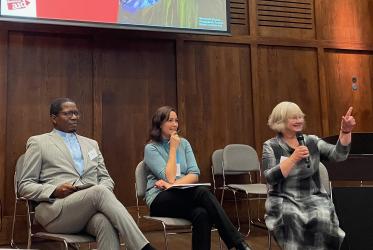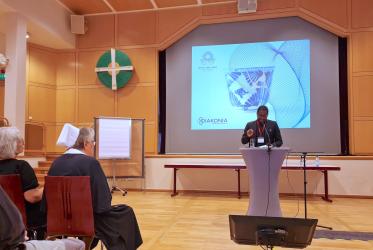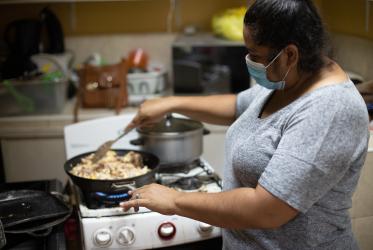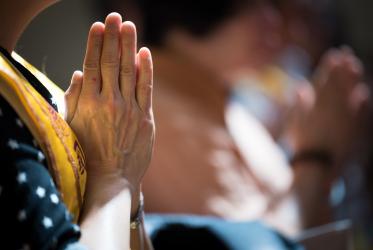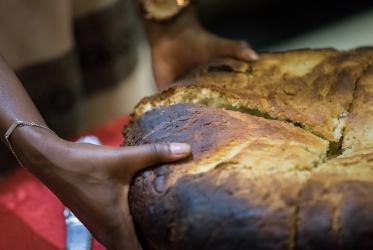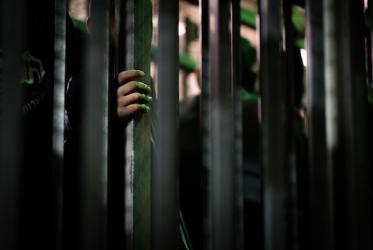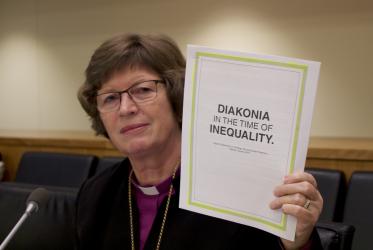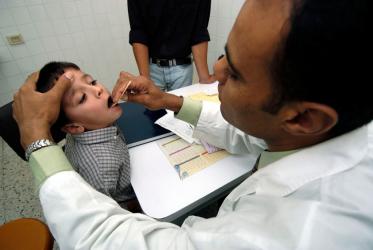Displaying 1 - 20 of 32
21 November 2023
Dr Abuom reflects on women of faith as healers of creation
05 October 2021
Faith communities vital in overcoming hunger
18 March 2020
American and Swedish church leaders sign joint climate justice pledge
26 September 2019
A faith-based, holistic approach to HIV and AIDS-care
13 March 2019
WCC general secretary speaks on the future of work
25 February 2019
On the journey to HIV – bridging gaps, debunking myths
21 February 2019
Sustainable resourcing for sustainable development
05 February 2019
Don’t give up the vision of health care for all! urges WCC
07 November 2018
Building Bridges in the global HIV response
25 July 2018
